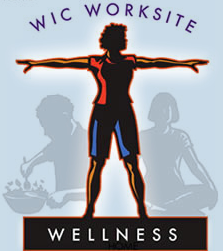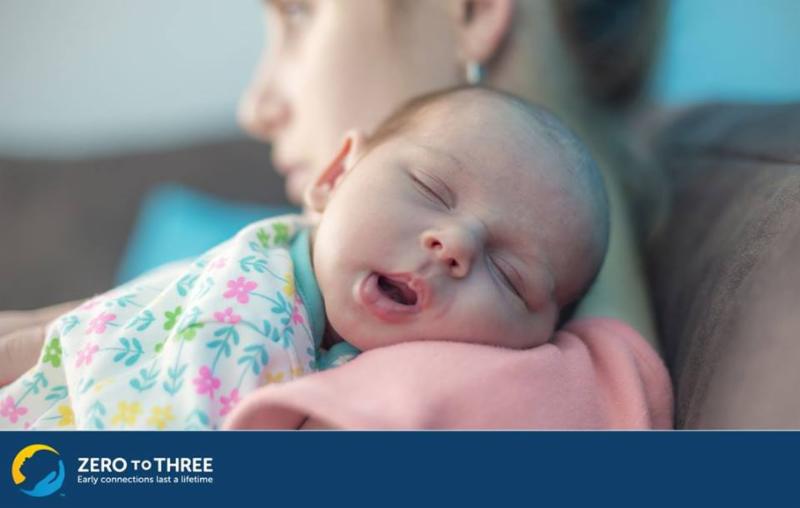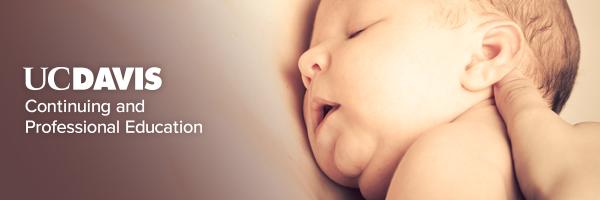|
Walking for Wellness
Spring is around the corner, and the weather is just right for a walk with coworkers, clients, neighbors, family, and friends. The Mayo Clinic gives some great advice on Walking to trim your waistline and improve your health. Set a goal to go out and take a walk for 15 minutes each day this week and identify something new about your surroundings that you didn't see before like a tree, a sign, or a local eatery.
|

Watch Out for Salt!
It can be hidden in bread, pizza, soup and other packaged foods and restaurant meals. Now, advice to watch out for salt is coming with a more specific reason. A report released by the National Academies of Sciences, Engineering, and Medicine ties the recommended limit on sodium to a reduced risk of chronic disease. The report, which is expected to serve as a guide for policymakers, says the updated guidance is meant to also convey that cutting back on salt can reduce risk of cardiovascular disease, even if people are still above the recommended limit of 2,300 mg a day for most adults.
|
Shopping at Amazon?
Support CWA without spending anything extra by using
AmazonSmile!
|
Did someone share this with you? Sign up here to get the CWA Flash directly!
|
|
 |
|

White House Releases FY20 Budget Proposal
The president's budget was released last week, highlighting the White House's priorities for the fiscal year (FY) 2020. The president's proposals include over $2.7 trillion in cuts to federal programs, including a 5% cut to non-defense programs. Key White House priorities, including military spending and the border wall, remain funded. The White House requests $5.8 billion in funding for WIC, which constitutes a 4.5% ($275 million) reduction in WIC funding from the FY 2019 appropriated level. In contrast, the National WIC Association is advocating for a small increase to $6.15 billion in total WIC funding. However, the president's budget number does represent a $50 million increase from last year's White House request, and the budget reiterates the longstanding federal commitment to secure adequate WIC funding to serve all projected participants. The budget targets several other safety net programs that help families meet basic needs. It would cut SNAP (food stamps) by $220 billion (about 30 percent) over ten years, cut basic assistance for people with disabilities through Social Security Disability Insurance and Supplemental Security Income, reduce supports to poor families with children through Temporary Assistance for Needy Families (TANF), and eliminate the Social Services Block Grant. The budget calls for deep cuts in public housing, a critical source of affordable housing, and would raise rents for millions of low-income households receiving rental assistance (including both those living in public and private housing). The budget also calls for policies that would take away assistance - including health care, food assistance, and housing assistance - from individuals who do not meet a work requirement.
|

Governor Newsom's CA Budget Proposals Snapshot
The Governor's budget proposal includes a range of significant expansions in support of low- and middle-income Californians who are struggling to make ends meet and access greater economic opportunity, including doubling the state's Earned Income Tax Credit, working toward universal preschool for 4-year olds, investing in child care infrastructure, expanding health care to move closer to universal coverage, expanding paid family leave, boosting CalWORKs grants, and increasing investment in state higher education systems. The CA Budget and Policy Center provides this useful tool to study the focus areas.
|

Federal Employee Paid Leave Act Introduced
Congresswoman Carolyn B. Maloney (D-NY), House Majority Leader Steny Hoyer (D-MD), Congresswoman Jennifer Wexton (D-VA) and Congressman Don Beyer (D-VA) have introduced the Federal Employee Paid Leave Act(FEPLA). FEPLA would guarantee 12 weeks of paid leave for federal employees for all instances covered by the FMLA, which currently only guarantees unpaid leave.
|

FAMILY Act Action Tool
More news on the family leave front, ZERO TO THREE has launched an online action tool titled "Tell Congress to Support the FAMILY Act." Individuals can use the action tool to contact their Members of Congress in support of the Family and Medical Insurance Leave (FAMILY) Act. Messages to Members of Congress include specific language about why the FAMILY Act is unique compared to other paid leave proposals in Congress - note that the FAMILY Act would benefit private sector workers and self-employed people, not just federal employees as with FEPLA. ACTION: Tell your member of Congress to support the FAMILY Act, and see more background information and resources from the National Partnership for Women and Families.
|
Conference Countdown!
In just over one month, we'll be in San Diego at CWA's 27th Annual Conference & Trade Show, April 28-May 1, for professional education, networking, inspiration and fun! Be sure to check the updated agenda and plan how you'll earn professional education units as an RD, IBCLC, or other lactation provider. A sampling of topics includes: racial health equity and reproductive justice; using social media to engage your community; smoking cessation among childbearing women; eWIC; California's housing crisis; infant self-feeding; and more! ACTION: Follow us on Instagram and Facebook and get ready to participate in our first ever CWA trivia night! Prepare to show off your favorite Hawaiian shirt! Register before April 19th, or register on site!
|

Latinx, Rural Communities Disproportionately Affected by Child Care Deserts
51% of Americans live in child care deserts, in which Latinos are greatly disproportionately affected, according to a new report by the Center for American Progress. Child care deserts are defined as regions where there are no licensed child care providers for kids under the age of 5 and/or there is less than one slot in an accredited child care center for every 3 children under the age of 5. Even though Latinos are the fastest-growing racial/ethnic group in the US and 25% of kids in the US are Latino, Latino families are more probable to live in regions with scarce child care options, with 60% of Latinos living in regions that have an undersupply of licensed child care centers. Even in areas with child care providers, families may struggle with access due to many systematic barriers and factors such as high cost and low wages. The report also found that immigrant Latino low-income households with children younger than the age of 3 had significantly lower rates of involvement in early childhood care and education as compared to native born Latino households.
|

Hospitalization for Infections During Pregnancy Elevate Risk of Mental Health Issues for Children
An observational study of nearly 1.8 million children shows that
risks for autism and depression are higher if one's mother was in hospital with an infection during pregnancy. Maternal infection with certain infectious agents, such as cytomegalovirus (CMV) or the herpes virus, are already known to be capable of harming fetal brain development and boosting the risk of certain psychiatric disorders. The findings of the current study, however, also show that infection in general during pregnancy, too -- including when the actual infectious agent does not reach the fetal brain -- is related to elevated risk of the child developing autism or depression later in life. Researchers say that the results indicate that safeguarding against and preventing infection during pregnancy as far as possible by, for instance, following flu vaccination recommendations.
|

Eating Eggs Daily Linked to Increased Risk of Heart Disease
Americans are eating more eggs than we were a decade ago - an estimated 280 eggs per person, per year, according to the U.S. Department of Agriculture. One reason for this might be the 2016 U.S. Dietary Guidelines revision, which dropped a longstanding recommended limit on dietary cholesterol. But a new study in JAMA finds that eating two eggs per day is linked to a 27 percent increased risk of developing heart disease. Researchers note that previous studies have come to inconsistent conclusions, but overall, there is evidence that limiting consumption of cholesterol-rich foods lowers the amount of artery-clogging LDL cholesterol that ends up in our blood. Per usual, experts say that when it comes to healthful eating, the best strategy is to focus on a well-rounded diet that includes a variety of foods such as fruits, vegetables, whole grains, nuts and seeds.
|
Risky Drinkers Reduce Drinking After Completing Innovative Intervention at WIC Clinics
A study at two Northern California WIC clinics found that self-administered electronic screening and brief intervention (e-SBI) reduces alcohol use. Non pregnant women, age 18 to 44 years, who reported risky drinking and completed the e-SBI, "DrinkWise" reduced how often they drank and reported less heavy drinking at 6 month follow-up than women who did not complete DrinkWise. This is the first randomized trial where a single-session, self-administered e-SBI in English and Spanish has shown efficacy in reducing drinking. DrinkWise is administered via a private, touch screen monitor and allows clients to interact with the program without any need for additional staff. The program takes 10 to 15 minutes to complete, assesses how much someone drinks, and provides personalized feedback. Armed with this information and guidance to reduce drinking, women can make informed decisions about their alcohol use. Madhabika Nayak, PhD, scientist with the Alcohol Research Group, a program of the Public Health Institute, partnered with the County of Sonoma and La Clinica De La Raza WIC programs for the study. See their press release for more details.
|
Pediatric Association Sponsorships by Infant Formula Companies
The Lancet
has published a comment titled "Sponsorship of paediatric associations by manufacturers of breastmilk substitutes." The authors note recent criticisms of pediatric meetings and conferences that receive sponsorship from breast milk substitute manufacturers and highlight the history of these relationships. They conclude that it is time to protect breastfeeding mothers from unfair influence and suggest that the International Pediatric Association could take a lead by issuing to its membership a strong statement of principle on curbing sponsorship from breast milk substitute manufacturers. The full text publication is available with a free Lancet account.
|
Immigration in the News: An Analysis of Coverage from Four CA Counties
A report and blog addressing immigrant news coverage are available from Berkeley Media Studies Group (BMSG). The hostile political climate facing immigrants in many parts of California means that communicating strategically and centering equity in those narratives is both challenging and urgent. To better understand the current conversation around immigration, BMSG conducted a news analysis of media coverage in four California counties. The report explores the factors driving coverage, whose voices are over- or under-represented, the degree to which health is present, and whether the news about immigration contains stigmatizing language. Also available is a blog that addresses how news coverage perpetuates harmful language about immigration. This new research from BMSG finds that despite some progress in removing stigmatizing language from coverage of immigration, the i-word still appears in a significant amount of coverage.
Ready to get to work and fight back? ACTION: For an overview of concrete next steps that you can take right now to support immigrant families,
Join the Protecting Immigrant Families Coalition for a webinar
on
Tuesday, March 26 at 1pm ET, 10am PT
. The presentation will cover new opportunities for administrative advocacy, Hill advocacy and ways to continue the fight against public charge while we wait on a final rule.
|
Your Birth Matters: New Resources for Pregnant Women!
The California Health Care Foundation, California Maternal Quality Care Collaborative, and Consumer Reports partnered to develop and launch My Birth Matters - an educational campaign to help pregnant women learn about C-Sections, their overuse, and how to talk to healthcare providers about them. C-sections can be important and lifesaving in some circumstances, but they're also a major surgery and mean more chances for complications for the mom and baby. Help educate pregnant women on this topic by showing any of these four videos, in English or in Spanish, in your waiting rooms. You can also hang posters and add brochures to your pre-natal packets - and refer women directly to the My Birth Matters website, written at the 6th grade level and full of additional, evidence- based resources. Already using the campaign, plan to do so, or have questions? Please email Beccah Rothschild, Consultant on the My Birth Matters campaign at the California Health Care Foundation.
|
 UC Davis Maternal & Child Nutrition Graduate Program UC Davis Maternal & Child Nutrition Graduate Program
Apply now for UC Davis' Master of Advanced Study in Maternal and Child Nutrition, a program designed specifically for full-time, working professionals who want to earn an advanced degree in this specialized area. Students in this 36-unit, part-time program will learn from internationally known researchers and faculty who have shaped U.S. and international policy on maternal and child health and discover how to design, implement and evaluate nutrition intervention programs for mothers and children from a variety of backgrounds. Applications are due April 15 for the fall 2019 program. For more information, call (800) 752-0881 or email cpeinfo@ucdavis.edu.
|
|
|